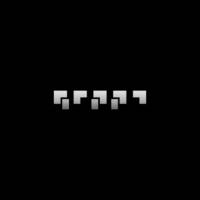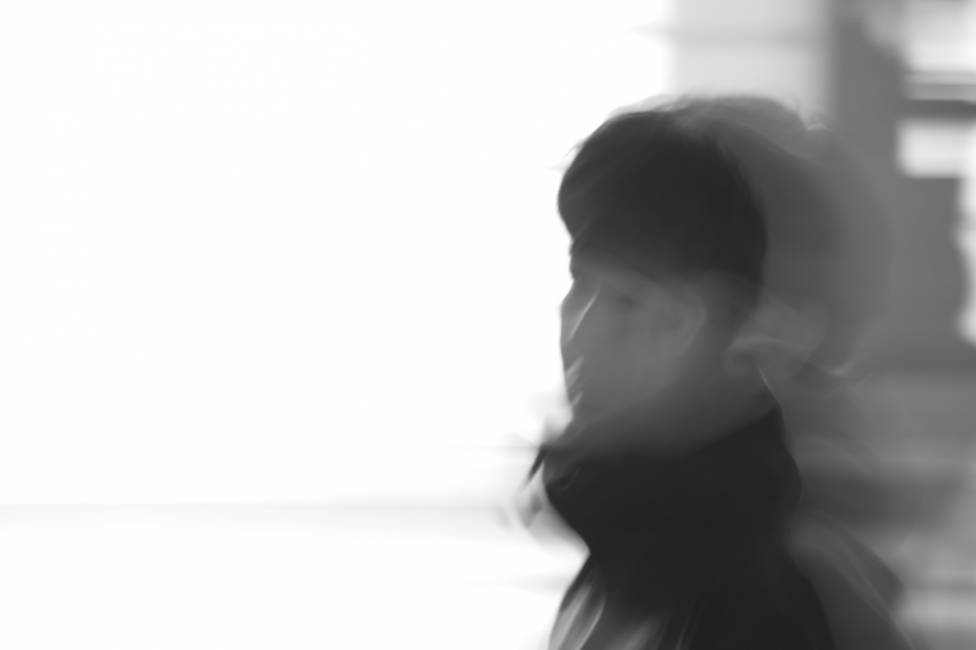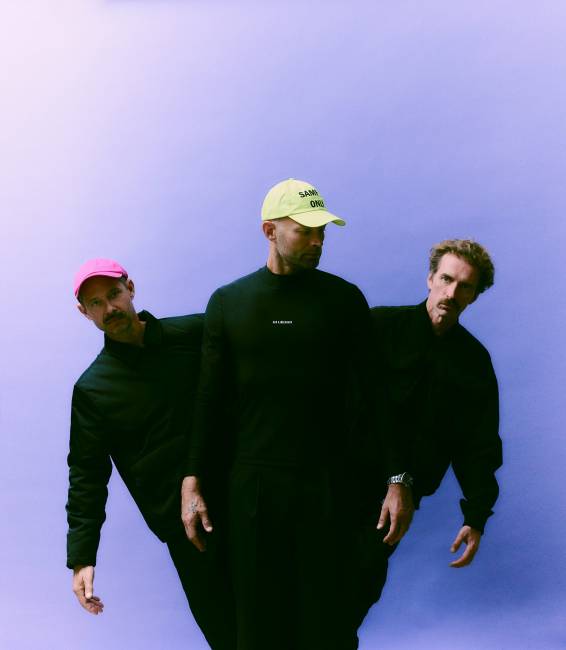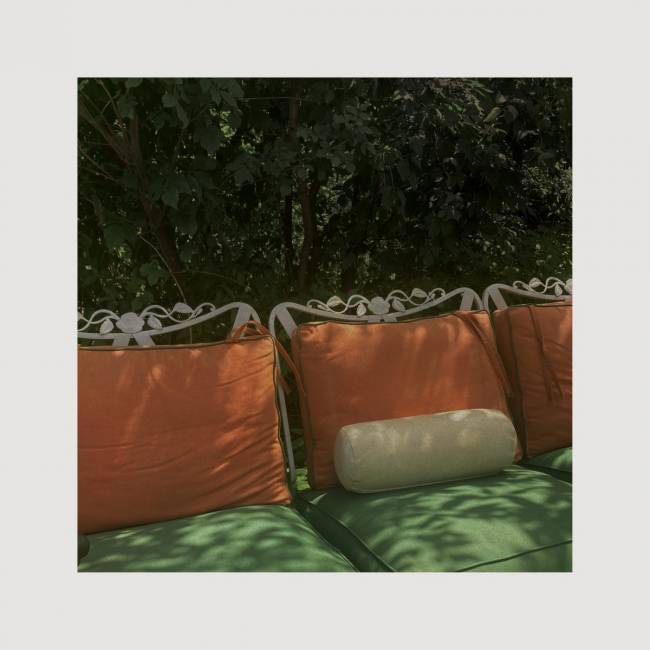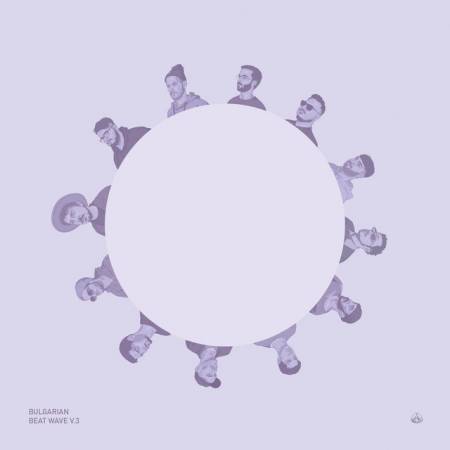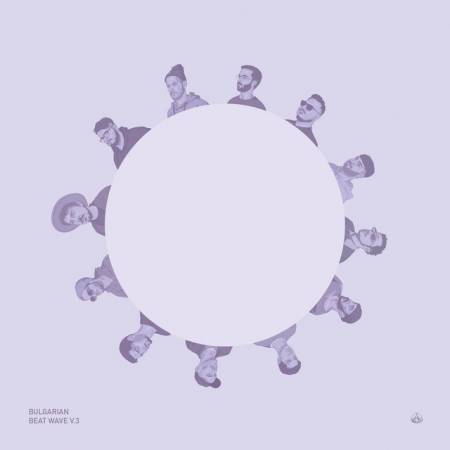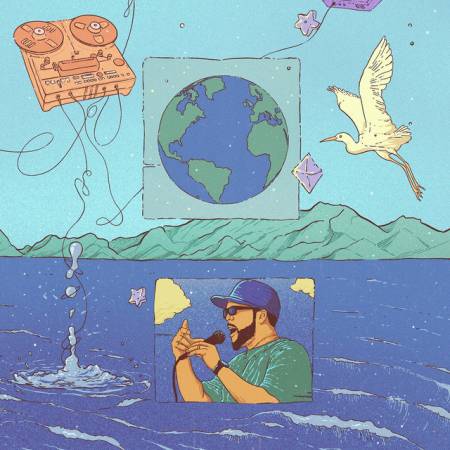You can try all you want to label the work of Sandy Finlayson AKA producer Seppa, but you'll struggle with that one. The Bristol-based producer has a unique brand that hydrates hip-hop based beats with his proprietary basslines and searing synths that truly bring the 'boom' to the 'boom-bap'. His debut album More slices through the membrane of the conventional effectively rewiring familiar styles and showing the infinite potential of sound. Backed by a Master's degree in Contemporary Music, free-lance work in mixing and mastering, as well as a long track record of producing and DJing, Finlayson has packed solid proving grounds.
Previously known as Duskky, Seppa has a home with the music collective and label Slug Wife, who asks: "What are genres? Can we eat them?". The Slug Wife brand, built alongside fellow producers Kursa and FFINN, represents a movement of free-form production tailored to the artists by the artists. The Slug Wife message has been positively received, as they continue to host stage takeovers internationally, including Bassnectar's Deja Voom festival in February 2019.
Seppa's been making major moves internationally himself, while immersed in the vibrancy of cultural epicenter Bristol, UK where he's based. We had the opportunity to see what's up with Seppa and learn more about his background, his scene, and his style. Stream his latest album More out now via Slug Wife, while you give this in-depth interview a read:
Hey Sandy, thanks for joining us, man. What’s been going on lately?
Hi Mike, so the past year has been pretty busy between pushing the label, Slug Wife, and my own musical projects. I self released and EP called ‘Thick Pits’ at the start of 2018, and then a collaborative EP with Kursa called ‘Eos Platform’ that kicked off the Slug Wife catalogue for the year. We put out a couple of releases from Reso on the label, a heavier release and a more stripped back Lo-Fi album under his Maru alias. I spent the summer finishing off a couple of albums in between playing and working at music festivals, friend’s weddings and summer activities like that. ‘More’, my debut solo album, came out in August and ‘Bright Spots’, a collaborative album between myself and Chalky came out in September. Finally the 10 year compilation from the other label that I co-run, Wonk#ay Records (the label where all this began), came out with a compilation of dark and gritty bass music, t-shirts and bundle of cool stuff. Since then I’ve been working on a load of new material that will start appearing soon across various labels.
Your recent full release More is diverse and cuts deep. What sorts of things did you aim to capture in this release? How did the whole thing go?
So I’ve been keen to make Seppa album for quite some time. Having released a string of EPs since starting the project, I felt like there were certain styles that would really fit best in an album context, mainly because on shorter releases they just wouldn’t be hard hitting enough. I was also keen to not fall in to the usual dance music trap of making an ‘album’ that’s just 12 dance floor tracks in a row without any kind of narrative to it. Most of the music was written when I was not even directly considering an album, but I had a realisation earlier in the summer that I had almost enough music with plenty of variation as well as a consistent vibe that tied it all together. There was a couple of ideas to finish off and the whole thing had to be sequenced and mixed/mastered which took some time, but it was a good snapshot of where my music was at and felt like a solid extended listen (lights down, volume up). After almost 6 months I’m still really happy with it. It definitely nailed down a sound I’ve been building up to for a while. I’ve already started on the next one!
You’ve been producing for some time, previously under the moniker Duskky. Give us a little background on your start into the Duskky days and how you made a transition to Seppa.
Duskky was pretty much the first alias I used to release electronic music and play out as a DJ. The first release was a single on a Netlabel called Twenty/Twelve audio (though I think i’d burned some stuff to CD and passed it round at parties before that). It was as Duskky that I got involved with Wonk#ay Records and really cut my teeth playing at parties, making and releasing music. Duskky was basically the whole foundation of Seppa, and since I changed the name for practical reasons (due to a clash with a more mainstream artist) it’s more like a continuation of the sound and ideas rather than a switch to something different. That’s also the reason why i’ve not used the name Duskky for anything since Seppa began, it would feel like going back in time.
Your formula of fusing genres and styles seems to be quite unique and free-form. We get elements of hip hop, glitch, bass, and beyond. Tell me more about the basic element, inspiration, and themes in your productions.
Really i’m just a sum of all the things I’ve come in to contact with over my life. I’ve always played music of some sort from my earliest memories, played saxophone in jazz bands since I was 12, played guitar and writing music since 13/14, and then arrived at London age 18 to an absolutely mad rave scene which consisted of clubs of all shapes and sizes, squat parties, free parties and pretty much the full spectrum of dark heavy dance music from the nascent Dubstep sound to Breakcore. After the initial excitement of discovering dance music and music production (which mostly involved emulating my favourite tracks), I started trying to combine sounds and genres in ways I felt were overlooked, or perhaps not executed in the way I’d like to hear it. I’ve pretty much carried on the same since then, and just absorbed more influences and better production techniques.
Some of the sounds you design are other-worldly and you’ve gained a name for this. Could you walk me through how you make some of these sounds? What equipment do you use? What kind of thinking goes into the whole thing?
I guess that bit is largely experimental. I try to keep adding more tools to my arsenal regularly so there’s always a new toy to play with when designing new sounds. I spend quite a lot of time throwing combinations of synths and processing plugins together in different combinations and see what gets spat out the other end. The sounds that are created are often a big inspiration behind the tracks, so I guess I’m generating ideas as much as I am interesting noises. Playing the right notes isn’t really what makes for an interesting track, it’s usually the meeting point between sound and rhythm. The sound design plays a huge part in making the magic happen.
The collective you belong to, Slug Wife, along with Kursa to industry veteran Reso … what’s Slug Wife all about and how did you get involved?
Myself, Kursa and FFINN alongside a couple of other core team members were involved from the ground up. Kursa and I had spent years building a sound and failing to convince bigger labels to release it in its undiluted form (they’d always want a more digestible interpretation of it -“oh it’s cool but I think people would like a trap tune a bit more, or a drum n bass track” etc.) It just got to a point where we were sick of trying to convince label managers to take a risk on what we were doing, and figured it would be easier if we took the risk ourselves. When we met FFINN she was similarly on board with the idea and brought a whole host of skills to the table that were sorely needed. The addition of Dave, Lisa and John, some old friends from London, meant that we had a good size team to both run the label and keep writing new material. Broken Note and Reso got more involved this past year and have brought both their excellent music and years of experience as stalwarts of the UK scene!
You’re based in a small city that’s jam-packed with music culture – Bristol, UK. What’s it like to be a producer and DJ in this city and the UK and general? What makes it special, in your eyes?
Well it’s definitely inspiring. The UK has such a strong rave scene and has done for so long that there’s so many different styles and sub-genres to absorb. When I became interested in electronic music the UK rave scene was already 20 years old and still going strong. Largely speaking the underground leads the way. Attempts at over commercialising the rave scene have had mixed success and squat parties and free parties are still common if you know where to look. From the perspective of an aspiring producer and DJ this is the best environment to be in. Firstly there’s so much competition that you have to get really good at what you do to stick out from the crowd. Secondly, because there’s not a lot of money going around your status is based off respect within the scene rather than who’s got the most cash to throw around on publicists etc. For anyone outside the UK wondering why it’s such a fertile breeding ground for electronic music, it’s because it’s only worth taking part if you really believe in it.
You’ll soon be in Mexico at Bassnectar’s Deja Voom festival representing Slug Wife alongside an army of bass music producers and fans. North America and the UK seem to be very much in tandem when it comes to bass culture. What are some differences and similarities you’ve observed? Any notable players on either side?
I guess despite the similarities in certain aspects of the US and UK music scenes, there’s more differences. For starters there’s a whole host of massive influences in the UK that don’t really exist in the same way in the states - Drum&Bass, Garage/Bassline, Hardcore, Breakcore, even the Deep Dubstep thing that’s picking up a load of energy in the states right now is really similar to the early iterations of Dubstep in the UK (Subloaded, DMZ etc.) so that’s an old influence here. Having said that, there’s a whole Hip Hop angle to electronic music in the USA which really doesn’t exist over here and brings up loads of interesting possibilities. It’s honestly hard to find a crowd for that in the UK. But what sticks out the most to me Stateside is The Black Box in Denver and Sub.mission, both projects from Nicole Cacciavillano. She’s managed to curate an amazing roster of artists and been so integral to bridging the gap between UK and US artists and fans.
What’s got you excited about the upcoming months and years?
I'm excited to see what everyone does next. There’s so many inspirational musicians I have the pleasure to both work with and call friends, that i’m just keen to see what they do next. The Slug Wife family have plenty of mind bending material to put out next year and I’m working on load of new stuff too. We’re all exploring sound and music, searching for that next bit of buried treasure, and as soon as we find it we’ll share it!
And finally: what’s some essential advice from Seppa for the world to benefit from?
The only area i’d consider myself relatively knowledgeable is making music, so i’ll aim it at aspiring producers: The trait that ties together every artist that makes it, is that when something goes wrong they pick themselves up, dust themselves off, and keep on going. Treat your failures as lessons and try another path. Sounds wafty, but it’s the truth! (and the only way to stay sane). Good luck.
Stay up to date.
New music and exclusive updates in your inbox weekly.

